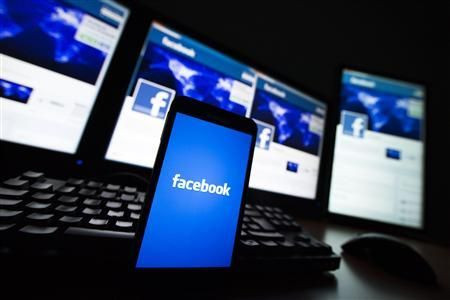Facebook Messenger Offers Free Or Discounted Messages In 14 Countries, Partners With 18 Mobile Carriers
Is this the first step in social media’s foreseen takeover of mobile messaging from texting?

In a move that will no doubt feed analyst predictions of whether the future of mobile messaging will be controlled by social media channels or SMS-based technology, Facebook (NASDAQ:FB) announced Monday that it has partnered with more than a dozen mobile carriers to offer users cheap and seamless access to its smartphone messaging service.
The deal, struck between Facebook and 18 mobile carriers and being deployed in 14 countries to start, offers users of the social network free or discounted access to mobile data in order to run the Facebook messenger mobile application without affecting their overall amount of cellular data allotted monthly.
Facebook said in a statement that the discounted feature will become available “in the coming months” for its messenger app powered by Google’s (NASDAQ:GOOG) Android and Apple’s (NASDAQ:AAPL) iOS phones as well as the “Facebook for Every Phone” app developed for feature phones, which are also known less politely as “dumb phones.” The Menlo Park, Calif.-based social media giant did not say if it had plans to extend this discount to other mobile operating systems such as Microsoft’s (NASDAQ:MSFT) Windows Phone 8 or Blackberry (NASDAQ:BBRY).
The question for Facebook, which seems more than ready to pronounce the death of SMS-based text messaging and other types of mobile communication in favor of its own, is why, exactly, Facebook feels compelled to partner with the old guard of the mobile market in the first place. The company recently expanded its Messenger service to Android users and non-Facebook members, and even added in free calls for iPhone users. In its statement, Facebook remained rather vague in this regard, simply saying the new partnerships will help expand the social network’s reach internationally.
“Messaging on Facebook lets people connect with friends and contacts on the go, regardless of what device they are using,” Facebook said in its announcement. “Three out of every four people on Facebook send a message on the platform each month, making messaging one of the most popular activities on Facebook. Today, Facebook messaging and chat can be accessed from more than 6,000 mobile phones via Facebook Messenger, Facebook for iOS and Android, Facebook for Every Phone, m.facebook.com and across other devices with Facebook integration.”
While Facebook did not come out and say it directly, the location of these new features is key. While U.S. mobile users are being compelled by their wireless carriers to switch over to data-hungry plans, data plans in other countries are just as varied as consumer behavior. The risk of financial penalty for exceeding a data plan is more than enough incentive to avoid downloading and installing Facebook Messenger entirely, and Facebook no doubt knows that it still lags behind rival mobile instant messaging service WhatsApp in regions like Europe.
Facebook may have to deal with some of its older and more seasoned counterparts in the mobile market to reduce the barriers to entry for Messenger. But if it brings in more users to the social network, it’s a bargain for a company whose primary currency remains its users themselves. The real question might be why the mobile carriers chose to go along with this plan in the first place.
© Copyright IBTimes 2024. All rights reserved.






















